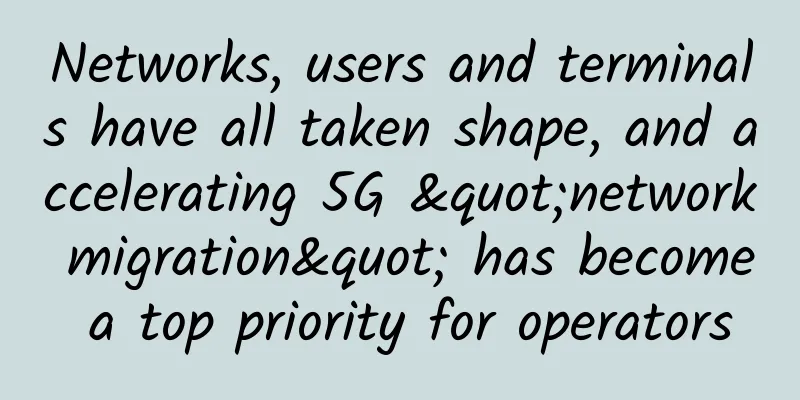Are you among the unemployed after 5G?

|
On June 6, a very special day, my country announced the commercial use of 5G. 5G is no longer far away and will slowly penetrate into our lives. If 4G brought prosperity to the mobile Internet and allowed many young people to find a shortcut to success, then the industry restructuring and industrial upgrading that 5G may bring may make many current workers lose the opportunity to continue working. Will you and I be among this group of unemployed people? Shrinking demand leads to unemployment for people who earn money by their own timeSome time ago, Beijing announced that all roadside parking in the urban area has been unmanned. The parking spaces marked beside the road do not require manual timekeeping and charging. Instead, they rely on a complete set of Internet of Things parking systems to automatically complete a series of actions such as license plate number recognition, timekeeping and billing, multi-channel reminders such as SMS, and self-service payment through the App. This means that those who collect parking fees on the roadside have lost their jobs. Earlier, a friend told me that after their community installed the automatic license plate recognition system, the security guards all quit their jobs. Because the parking fees were collected by the security guards before, and naturally part of it went into their own pockets, but after the automated system replaced manual operation, there was no considerable extra income, and the security guards also lost interest and motivation to continue working. However, with the development of the economy, labor costs will gradually increase, and employee-related expenses will account for an increasing proportion of the total cost of enterprises. The construction and promotion of the new generation of mobile communications, especially the development of the Internet of Things and artificial intelligence, will soon replace actions that previously required manual recognition and simple operations with digital industry applications, shrinking labor demand, and practitioners who simply rely on time to make money face the risk of unemployment. Objectively speaking, many technologies are not mature enough and will not replace human labor overnight. It may take a long time for unmanned driving to replace professional drivers, and using drones to replace couriers is still a dream. However, if we define the usage scenario as a closed area, such as unmanned vehicles in a park or drones in a warehouse, we will find that this replacement is possible and has even occurred. It is an inevitable trend for systems to replace people. Jobs that lack professional skills or are easily replaced by machines are high-risk jobs that will disappear in the 5G era. Abundant supply leads to devaluation of people with only basic IT skillsAt the "T-EDGE Technology Lifestyle Festival" held last week, there was a session called "Fewer Conferences". Several post-00s spoke to the "old ladies" and "old uncles" in the audience on the central stage of the 1,000-person stadium, talking about their design concepts for artificial intelligence technology and human-computer interaction products, as well as their ideas for the future development of artificial intelligence products. The youngest speaker was only 10 years old, but he already had four years of programming experience and had made a translator for his grandfather, translating Mandarin into classical Chinese, English, Japanese, French, and Spanish. You may think that these are rare geniuses, but in Beijing, programming classes for primary school students are not new. The child of a friend of mine is 10 years old and has already started to learn programming with great interest. They do not write the code completely by themselves, but use drag and drop to combine the code and statements to cultivate professional thinking and skills. The child excitedly told us about the algorithm he designed, which sounded quite methodical. With the advent of the 5G era, digitalization is about to change the infrastructure of all industries, and IT is an unstoppable trend. The development of cloud computing technology, middleware, API interfaces and other tools and platforms has driven programming operations to become increasingly simplified and the experience to become better. Programmers do not have to be bothered by the tediousness of the underlying layer, but only need to focus on the logic of the program and the capabilities it demonstrates, which greatly improves development efficiency. I once expressed the view that programming in the future will be like writing PPTs now, and it will be a basic skill in the workplace. Now it seems that this prediction is not bold enough. The rapid development of digitalization will lead to a continuous rise in the level of basic IT skills. People who can write code now joke that they are "code farmers", but in fact they still feel superior in their hearts and think they have mastered skills that ordinary people don't have. But in a few years, when these people who have been exposed to digitalization since childhood enter the workplace, what competitiveness will those who survive only by basic IT skills have? Industrial upgrading leads to the elimination of people who are used to thinking in extension linesThe earliest mobile phones were based on "extension and supplement of fixed-line telephones". Later, when mobile Internet was first born, some people regarded it as "mobile desktop Internet" or "mobile access to the Internet". Facts have proved that all these developments that follow the "extension line thinking" are wrong. Ultimately, mobile communications and fixed communications are two networks of equal status, and mobile Internet is a brand new track. Those who stick to old experiences are doomed to fail. This is a problem presented by the "extension line thinking" in the field of science and technology. It is similar for individual development. Each generation has its own mission. Especially in recent years, China's rapid growth has made people with only a ten-year age gap in different industrial environments. Those born in the 1950s relied on their own efforts and hard work to grow and develop in a relatively closed environment; those born in the 1960s encountered reform and opening up and saw the gap between the country and the outside world, and many of them benefited from this gap; those born in the 1970s were determined to catch up, narrowed the gap by comparing with international benchmarks, and benefited from their hard work and perseverance in catching up; those born in the 1980s followed the development of mobile Internet and, with the help of innovations in technology and capital markets, young people quickly achieved success. Successful people in different eras caught up with the right development wave, which means that success cannot necessarily be replicated. However, many successful people are not aware of this problem, and still use their own successful experience to educate the next generation and still apply their own successful model to expand new business. 5G has triggered a great development of industrial digitalization. What kind of development opportunities will this bring to the rising generation of the post-90s and post-00s? I think it will be different from all previous models. They have lived a wealthy life since childhood, adapted to digital life, and are not troubled by the shadow of material scarcity and the gap between China and foreign countries. Therefore, they are more innovative and have a broader vision. Faced with such a group, what are the chances of success if we still use extension line thinking to try to copy those who have been successful in the past? ConclusionThe changes brought about by the 5G era are not just on the technical level. Whether it is grassroots manual laborers, middle-level professional and technical personnel, or senior managers and successful people, they may lose their living space in the workplace because they cannot keep up with the changes of the times. To change your own destiny, you need to continue to learn and refresh yourself so that you have the ability to survive and succeed in the new era; and once your own concepts and abilities keep up with the development, you will find that the opportunities brought by 5G far outweigh the challenges. Compared with IT, the technical threshold of CT is higher. 5G drives many industries to digitize. For people working in the communications industry, this opens the door to a new world. In the future, communications will not only be the basic channel services provided by operators to the public, but also escort the combination of thousands of industries and 5G. It is the foundation for enterprises to implement digitization with the help of 5G. So in my opinion, the career development space for practitioners in the communications industry will undergo tremendous changes due to 5G. They should prepare themselves carefully while the outside world is bustling, maintain their abilities and status in the communications professional field, and wait for opportunities to arise. |
>>: What functions and advantages does 5G technology bring to enterprises?
Recommend
Wu Hequan, academician of the Chinese Academy of Engineering: There are still three fatal problems with 5G at present
The communications field has always been the weak...
Following FPA and Karaoke Room, Agora released a series of new products including CDN live streaming to expand the boundaries of RTE products
On October 22, the RTE2021 Real-time Internet Con...
The new THE PLAN v2 from BandwagonHost, quarterly payment starts from $32.6, available in Japan/Hong Kong/US CN2 GIA, etc.
BandwagonHost has launched a special package call...
Join hands to innovate and start a smart future. The completion and project signing ceremony of Cisco (Guangzhou) Smart City Industrial Development Center was successfully held
In order to promote the further development of Ci...
HostYun: Russia's two-way CN2 line with large bandwidth KVM, monthly payment starts from 22 yuan
HostYun has been providing Russian CN2 line VPS f...
iPhone 12 may not support 700MHz band, causing concerns in the UK telecom industry
According to the information currently available,...
2018 Trend Forecast and Future Outlook
1. About safety 1. Connected cars are more than j...
TripodCloud: US CN2 GIA line VPS hosting $38.99/half year, 1Gbps bandwidth, optional large hard disk
Many friends are looking for CN2 GIA line VPS hos...
Inventory: 11 foreign SASE vendors
SASE (Secure Access Service Edge) is a networking...
With 30,000 layoffs, what have American operators experienced?
According to public data, the scale of layoffs at...
European countries are intensively carrying out 5G spectrum auctions: Why the cost differences are so different
Compared to Italy, Austria's 5G sales look li...
Huawei's Peng Song: Building connectivity competitiveness based on the CAF model to create new growth
On October 19, the 7th Global Ultra-Broadband For...
China leads in 6G patent applications, satellite communication technology attracts attention
On April 26, the Intellectual Property Developmen...
Ruijie's Minimalist Lighting Appears at the University Informatization Development Seminar, Focusing on New Infrastructure of Smart Campus
On April 16-17, the 2021 University Informatizati...
5G speed is already incredible, is 6G network coming?
Now 4G network signals have been popularized all ...









